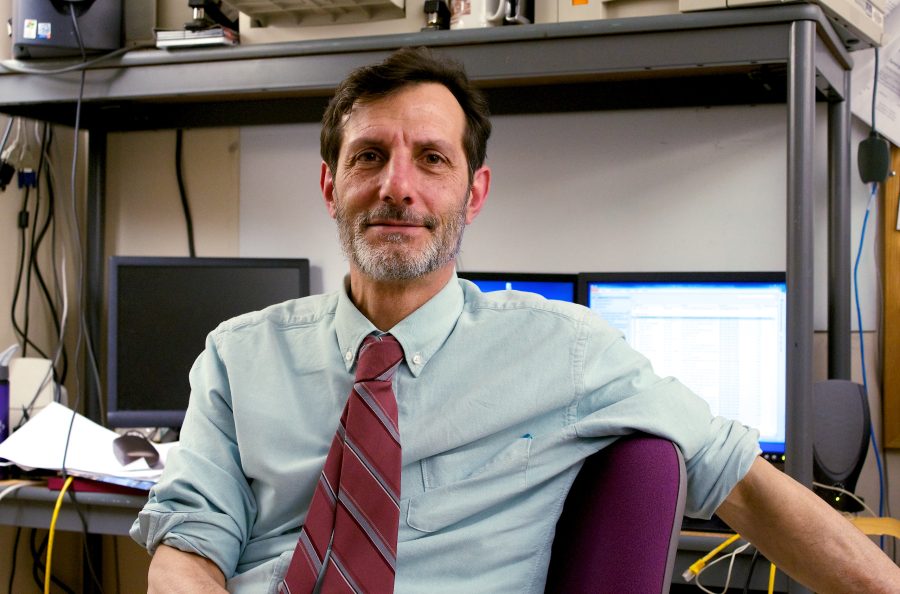The College of Advancing and Professional Studies (CAPS) at UMass Boston will launch the university’s first Massive Open Online Course (MOOC) on March 10. MOOCs are free, not-for-credit courses available to all, regardless of whether they formally register with the university or not. As the name implies, MOOCs reject the traditional model of small class sizes and small student-teacher ratios, instead enrolling “massive” numbers of learners in each course.
According to Alan Girelli, Director of Center for Innovation and Excellence in eLearning (CIEE), the 12-week-long “Molecular Dynamics for Computational Discoveries in Science” course will be targeted to learners from all over the world. The five-week-long course, “Coasts and Communities” will take place in mid-to-late June.
The professors and faculty members from the physics department and the earth, environmental and ocean sciences department (EEOS) will produce lecture videos for the two courses.
Nishikant Sonwalkar, an MIT-trained adjunct faculty member of the physics department, along with other faculty members, will be involved in the moleccular dynamics course. Professors Robyn Hannigan and Anamarija Frankic, chair and co-chair of EEOS, will teach “Coasts and Communities.” The molecular dynamics course is based on 600-level physics course, but will be taught at the 400 level and aimed at undergraduate students.
Participants can expect two quizzes a week and a formal exam. At the successful completion of the courses, UMass Boston will give a certificate to the registered participating accounts. “If a student does not pass the exam, he or she will not be eligible for the certificate,” Girelli said.
The MOOCs launched by UMass Boston will face tough competition from edEX, launched jointly by Harvard University and MIT in April of 2012. According to Girelli, “This is going to be a healthy rivalry to see who is going to develop the best platform for MOOCs and other broadly-disseminated online courses.”
Daniel MacDonald, a biochemistry major is happy about the MOOCs. “I think its a great educational opportunity across the globe,” he said.”
At the same time, MOOCs have come under fire from professors who feel that online learning, especially online learning without individual attention from a professor, doesn’t teach course material effectively. Several articles about MOOCs have been published in the Chronicle of Higher Education, some highly critical.
Right after the announcement that the university would offer MOOCs a month ago, UMass Boston started to receive inquiries from all over the country. “Queries like how to [do I] register, what will be the format, what prerequisite do I need, are often asked,” Girelli explained.
Synaptic Global Learning (SGL), a software company specializing in online education, will design the MOOC platform for UMass Boston. Girelli said, “To enhance accessibility, we are ourselves creating audio annotations of the intense graphics for the blind, who do not get the benefit of the computer simulation and other graphics that are being used. The MOOC technical team includes Jessica Downa, a media specialist, Christian deTorres, an instructional technologist, and Rizarta Hasini, lead instructional designer.
One of the challenges of the MOOC project is creating high-depth resolution video and heavy fine grain computer simulations. The technical team has given emphasis on computer modeling and computer simulations.
At first, UMass Boston is not expected to make money off of the MOOCs, but eventually Girelli feels that the courses should provide a financial benefit for the university. “For the long term”, Girelli said, “it’s not sustainable without a cost recovery model.”





















































